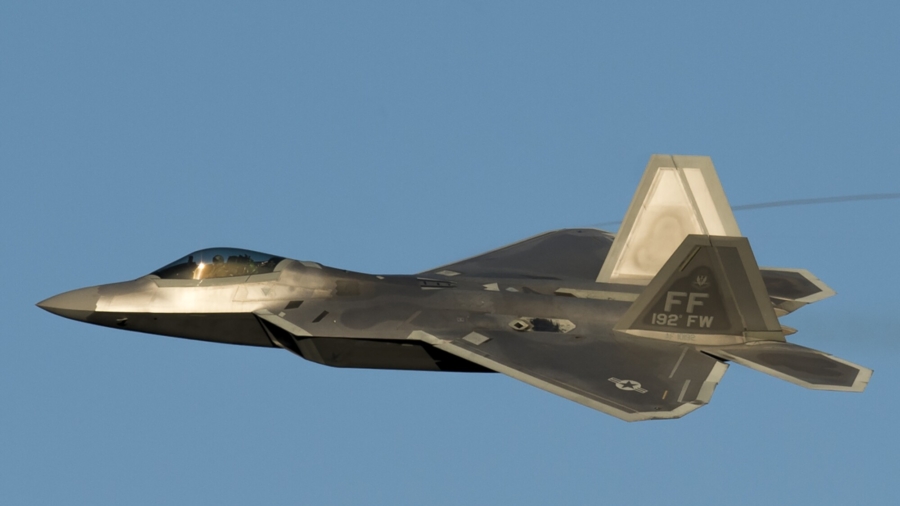China is imposing new sanctions on two U.S. military contractors, Raytheon and Lockheed Martin, for supplying weapons to Taiwan, in the Beijing regime’s latest retaliation against Washington’s support of the self-ruled island.
Wang Wenbin, a spokesperson for China’s foreign ministry, announced the move at a regular press briefing on Feb. 21, citing China’s Anti-Foreign Sanctions Law. He described Raytheon Technologies and Lockheed Martin, two of the United States’ largest defense manufacturers, as “military industrial enterprises that have long participated in the U.S.’ arms sales to China’s Taiwan region.”
No details were given on the nature of the sanctions.
The measure followed less than two weeks after the United States approved a $100 million military deal to bolster the island nation’s missile defense system. Raytheon and Lockheed were named as primary contractors in the sale.
“Foreign Military Sales are government-to-government transactions, and we work closely with the U.S. government on any military sales to international customers,” Lockheed told The Epoch Times when asked about the sanctions.
Beijing consistently claims self-ruling Taiwan as part of its own territory and has never renounced using force to bring the island under its control. While the United States has no official diplomatic ties with Taiwan, it’s the island’s largest ally and is bound by law to ensure that Taipei has sufficient means to defend itself.

Over the past two years, Chinese military jets have flown into the island’s air defense zone on a regular basis, with the number of flights totaling 961 last year alone.
Last month, the regime sent 39 aircraft into the zone. State-run tabloid Global Times later claimed that such incursions would only increase, warning that Chinese warplanes “will sooner or later fly over” Taiwan.
On the global stage, the regime has sought to isolate Taiwan by pressing the last few countries that formally recognize the island to withdraw this in favor of Beijing. It has also pressured international bodies to exclude Taiwan from membership and participation.
During the Winter Olympics, which ended this week, a Beijing Olympics spokesperson repeated claims that “Taiwan is an inalienable part of China,” earning a rare rebuke from the International Olympic Committee over the political nature of such comments.

While the two U.S. companies have been sanctioned by Beijing before, the measures on Feb. 21 marked the first restrictions imposed on them under China’s anti-foreign sanctions law introduced last June. The law, introduced in retaliation against growing restrictions placed on Chinese firms by Western governments over security and human rights concerns, gave Beijing broad powers over foreign firms doing businesses in China, including denying visas, deporting, or restricting travel for affected entities, and seizing their properties.
Beijing had threatened similar punishment on a number of occasions since 2010 after U.S. arms sales to Taiwan.
In the most recent cases, Raytheon and Lockheed, along with Boeing, were placed under Chinese sanctions in October 2020 after the State Department gave the nod to arms sales valued at $1.8 billion. Lockheed was the target of a previous unspecified Chinese sanction in July of that year, following U.S. approval of another Taiwan request to update its missile system, where Lockheed was the principal contractor.
Spokespeople for Raytheon and the State Department didn’t respond to a request by The Epoch Times for comment by press time.
From The Epoch Times


